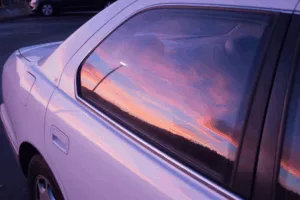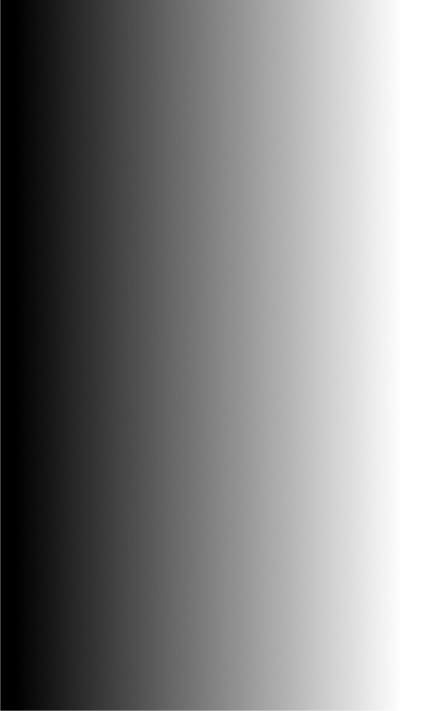Tint Laws in Oregon: How to Enjoy Privacy and Comfort Without Breaking the Rules
Tint Laws in Oregon: How to Enjoy Privacy and Comfort Without Breaking the Rules
For many Oregon residents, window tinting is more than an aesthetic choice; it’s a matter of comfort, privacy, and protection. Whether you’re commuting through Portland, exploring the coast, or navigating foggy mountain roads, tinted windows can offer reduced glare, lower interior temperatures, UV protection, and increased privacy for you and your passengers.
TERMINAX specializes in helping drivers navigate Oregon’s tint regulations. Our goal is to balance compliance with performance, making sure every car looks great and stays within the law. In this article, we’ll dive into how Oregon’s tint laws apply to daily driving life, and how TERMINAX ensures your ride is both stylish and street-legal.

Why Window Tint Matters in Oregon’s Climate
Oregon’s climate is unique. Summers can be dry and hot in the eastern part of the state, while western Oregon is known for its rainy skies and mild sunlight. Drivers in different regions may want tinting for different reasons:
- In the Willamette Valley, you might want a light tint to cut glare without dimming already overcast views.
- In Bend or Pendleton, where summer sun can be intense, a darker film helps keep interiors cool.
- On the coast, privacy tint helps protect gear stored in SUVs and hatchbacks during long weekend trips.
That’s why understanding the legal limits in Oregon is essential; you want to choose a tint that works for your lifestyle without violating state law.
How Oregon Regulates Window Tinting
Oregon law defines legal tinting based on a measurement called Visible Light Transmission (VLT), which is the percentage of visible light allowed to pass through both the window glass and tint film. The lower the percentage, the darker the tint.
But Oregon doesn’t apply the same VLT rules to every window on your vehicle. The law distinguishes between front-side windows, rear windows, and the windshield. It also treats passenger cars and multipurpose vehicles—such as SUVs—differently.
Let’s look at what’s allowed:
For Passenger Cars
- Windshield: Tint is permitted only along the top 6 inches.
- Front Side Windows: Must allow at least 35 percent of visible light through.
- Rear Side Windows: No VLT limit; any darkness is legal.
- Rear Window: Also allows for any darkness.
For SUVs and Vans (Multipurpose Vehicles)
- Windshield: Same as sedans, top 6 inches only.
- Front Side Windows: Must also allow over 35 percent light.
- Back Side Windows and Rear Window: Can be tinted to any darkness level.
This flexibility lets SUV and truck owners tint rear windows for privacy or cargo protection, while ensuring driver visibility remains consistent.
A Day in the Life: When Tint Laws Matter
You might be wondering, how often do these laws really come into play? Here are just a few everyday examples where Oregon’s tint laws could affect your driving experience:
- Highway Patrol Stop: If an officer can’t clearly see into your front seat, your tint may be checked using a handheld meter. Failing the test could result in a citation.
- Emissions or Safety Inspection: Although Oregon doesn’t have a statewide safety inspection program for all vehicles, some counties do require emissions testing. Illegally tinted windows could trigger secondary inspections.
- Accidents or Insurance Claims: If your tint is darker than allowed, it could potentially complicate fault investigations or delay your claim.
- Vehicle Sale or Trade-In: A car with illegal tint may be less desirable at resale or require extra cost to remove and replace the film.
TERMINAX ensures that you stay out of these scenarios by guiding every customer through legal VLT options based on vehicle type and usage.
Legal Tint Reflectivity in Oregon
Besides darkness, the law also limits how reflective a tint can be. Oregon restricts mirror-like films that can distract other drivers or interfere with visibility.
- Reflectivity Limit: Tint must not be more reflective than a standard window. Highly metallic or mirrored films are generally not allowed.
TERMINAX uses only non-reflective, road-safe materials that reduce glare while still complying with reflectivity laws.
What About Factory Tint?
Many SUVs and trucks come with factory tint on rear windows. This factory-applied tint is built into the glass and is exempt from some rules. However, adding extra aftermarket film on top of factory glass could push you below the legal VLT threshold for that window.
At TERMINAX, we use digital VLT meters to measure your factory glass before applying any new film. This guarantees you don’t unintentionally violate Oregon law.
Do You Need a Tint Certificate or Sticker?
Oregon does not currently require drivers to display a sticker or carry a tint certificate, but that doesn’t mean you’re free to choose any film. Enforcement can still happen on the road if an officer suspects your tint is too dark.
Some states require labels, while Oregon doesn’t. TERMINAX provides compliance documentation for all installations. We also track each film brand and VLT rating for reference, should you ever need to confirm your compliance.
Medical Exemptions: Can You Go Darker?
Yes, Oregon allows medical exemptions for those with conditions that require additional sun protection. If you suffer from a medically recognized condition, such as lupus, photosensitivity, or a history of skin cancer, you may qualify to install darker front window tint than normally allowed.
The process typically involves:
- A physician’s statement describing your condition
- Approval from the Oregon Department of Transportation or the local DMV
- Documentation that must be carried in your vehicle
TERMINAX helps customers with the exemption process by providing detailed tint specifications and working with pre-approved exemption limits.
What Happens If You Break the Law?
Oregon authorities can issue fines or require the removal of illegal tint. A first offense could cost you anywhere from $100 to $360, depending on the circumstances. Repeated offenses or ignoring removal orders may lead to larger penalties.
In addition to fines, you might be:
- Denied registration renewal until the tint is removed
- Ordered to fix the violation before a court date
- Charged additional fees if the vehicle is used commercially
TERMINAX installations are guaranteed to pass VLT compliance checks, helping you avoid unnecessary risk and hassle.
Choosing Tint for Oregon’s Diverse Environments
Oregon has varied terrain—from the rainy coast to the sunny high desert. Your tint needs might change based on your location:
- Urban Areas: A lighter, legal tint offers privacy while keeping law enforcement interactions hassle-free.
- Rural Roads: Reduced glare from oncoming traffic at night can be crucial for safety.
- Mountain Routes: Consistent visibility in fog and fluctuating weather conditions is key.
TERMINAX technicians take these environmental factors into account when recommending your tint film.
How TERMINAX Helps You Stay Legal and Comfortable
We combine style, legal knowledge, and technical precision in every installation. When you choose TERMINAX for your window tinting needs in Oregon, you get:
- Access to legal, state-compliant tint films
- Free VLT testing of your current windows
- Custom recommendations for your driving habits and region
- Installations backed by warranty and compliance confidence
- Help with medical exemption tinting if needed
We believe that a safe and attractive tint should never be a legal risk.
Final Words: The Smarter Way to Tint in Oregon
Window tinting is a valuable upgrade for many Oregon drivers, offering comfort and privacy year-round. But staying compliant is just as important as looking good. With ever-evolving enforcement and regional climates to consider, making the right choice requires more than picking a shade.
TERMINAX makes the process smooth and stress-free. We help Oregon drivers find the perfect legal tint for their vehicle, environment, and lifestyle. Whether you’re in Eugene, Portland, or out in central Oregon, we’re your partner in legal, lasting window tinting.


